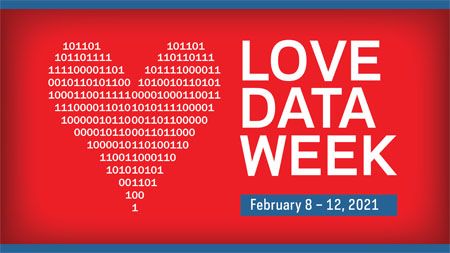2021 Data Haiku Winners
Congratulations to our Data Haiku winners.
The following winners are in no particular order.
Title: D8a Boi
He's a data boy
She said see you later boy
Find a new model
Author: Alec Torigian, Alliance for Catholic Education
No Title
Mined from raw to rich
“Data’s the new oil,” they say
Fueling new frontiers
Author: Maggie McMahon, Undergraduate Student, ITAO/Business Analytics
Title: Lost Connection
Message of Despair
Bane of Procrastinators
Error: 404
Author: Peter Schimpf, Undergraduate Student, Aerospace Engineering
Honorable Mentions
Title: Ethnographic Data from a Fort Wayne Funeral
Draped in white she lies
I stare at her for long, since
The dead cannot talk
Author: Helal Mohammed Khan, Graduate Student, Peace Studies and Anthropology
Title: Bayes
The bayesian stats,
think independent events.
Likelihood of case.
Author: Sarah Nicholls, Undergraduate Student, Applied and Computational Mathematics and Statistics
Title: Ode to Data
Oh! your lovely curves,
You’re a variance from all
the standard subjects
Author: Matilda Sweis, Undergraduate Student, Computer Science
No Title
Data everywhere.
Thank you for the data file.
Codebooks are nowhere.
Author: Don Brower, Hesburgh Libraries
Title: Cartesian love story
Their relationship
Dependent, variable
A scattered plotline
Author: Brian Fremeau, Office of Campus Safety
Title: Tik Tok
Become numeric.
Forget who you are—swipe on
Let algos decide…
Author: Tommy Campbell, Undergraduate Student, Finance
Title: anonymized
deidentified
metadata connects us
(i know who you are)
Author: Anna Michelle Martinez-Montavon, Hesburgh Libraries
Data Haiku Contest
Write a haiku about data! Your haiku must be related to data in some way (e.g., data management, processing, sharing, preservation, reuse, etc.).
The contest is open to current Notre Dame students and employees. 1 submission per person. Submissions are due by noon on February 12.
What is a haiku?
Haikus have a rigid structure of 17 syllables divided across 3 lines. The first line should have 5 syllables, the second line should have 7 syllables, and the third line should have 5 syllables. Haikus do not need to rhyme.
Haiku Example
Title: Preprocessing
Cleaning, reducing
and ignoring outliers.
Only one case left.
Author: Arnon Hershkovitz, Israel
Prizes
3 winners will receive an "I Love Data" coffee mug.
Authors of winning and honorable mention entries will be notified via email on February 12.
Winning and honorable mention entries will be posted on the Data Haiku event page at library.nd.edu/event/love-data-week-2021-data-haiku-contest.
Judges
Ben Chiewphasa, Navari Family Center for Digital Scholarship
Jessica Young, Center for Social Science Research
Michael Deike, Navari Family Center for Digital Scholarship
Victoria Woodard, Applied and Computational Mathematics & Statistics
See the 2020 Love Data Haiku contest winners.
Other Love Data Week Virtual Activities
Love Data Week is dedicated to spreading awareness of the importance of data management, sharing, preservation, and reuse. If you care about research, professional, community, and personal data, please join us!
February 8, 2pm – 3pm — Bringing Order to Qualitative Madness with ATLAS.ti
If you're in the middle of a qualitative research project, you're probably juggling dozens of documents that need to be coded. At this workshop, you will learn how to use ATLAS.ti to bring order to the chaos of your qualitative research project.
February 9, 2pm – 3pm — NVivo for Beginners
If you're in the middle of a qualitative research project, you're probably juggling dozens of documents that need to be coded. Learn how to use NVivo to bring order to the chaos of your qualitative research project.
February 10, 11am – Noon — Zoom Drop-In: Managing Your Personal Data
Want to better manage your documents, photos, and other personal files? Stop by this virtual drop-in session, and we’ll go over how to help keep your information more organized and easily findable! Note: this workshop is offered again at 3pm.
February 10, 3pm – 4pm — Zoom Drop-In: Managing Your Personal Data
Want to better manage your documents, photos, and other personal files? Stop by this virtual drop-in session, and we’ll go over how to help keep your information more organized and easily findable!
February 11, 11am – Noon — The U.S. Census: Then, Now, and Moving Forward
Join us in exploring the U.S. Census’ beginnings, its current charge and intent, and the challenges it faces in contemporary society. We will also spend time experimenting with tools useful for socio-demographic research involving US Census resources — specifically, extracting and customizing data from Data.Census.gov and visualizing data with Social Explorer.

